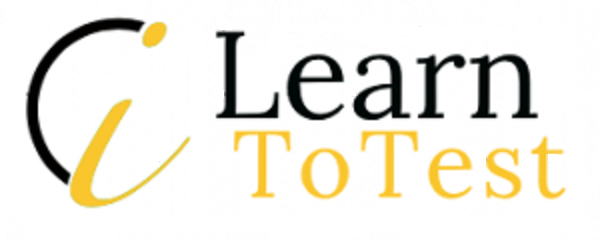The software tester position is in high demand and there are many interested to enter in this domain. But, how to start a career in software testing?
You will probably ask why. It’s simple. In some countries, this job position is well paid and it’s easier to enter in a software development company by applying for a tester position.
BUT, hold on! In the last years, this job became very popular and the requirements increased as well, it still a domain where you can work without having many years of experience under your belt.
Where To Start?
First of all, you should add some testing books to your library.
Software applications are developing fast and this is true about testing. You have to keep up to date with the new trends and update yourself.
New tools and practices are coming up.
There are many books out on the market, but I will recommend some which I have used:
1. Foundations of Software Testing: ISTQB Certification, by Dorothy Graham, Erik Van Veenendaal, Isabel Evans, Rex Black
I absolutely love this book. This is a must for everyone who wants to start working in software testing area.
The book shares terms and practical parts for each chapter.
The book covers all six section of the Syllabus helping you to pass the ISTQB certification.
2. Lessons Learned in Software Testing: A Context-Driven Approach, by Cem Kaner
Another must read for beginners.
The book will help you to understand the tester role and teach you to think like a tester. The testing techniques are described and you will learn about documenting testing and automated testing.
For some, the hard thing when working in testing area is interacting with developers. You will probably hear so many times: ‘It works on my machine’.
This book will give you some tips on how to interact with programmers.
The rest of the chapters will cover: Managing the Testing Project, Managing the Testing Group, Your Career in Software Testing and Planning the Testing Strategy.
3. Beautiful Testing: Leading Professionals Reveal How They Improve Software (Theory in Practice), by Tim Riley and Adam Goucher
The book is a collection of 23 articles from 27 leading testers and developers which through personal anecdotes, you’ll learn how each of these professionals developed ways of testing a wide range of products
4. The Art of Software Testing, by Glenford J. Myers, Corey Sandler, Tom Badgett
The book targets the software testing approaches. Learn how to find defects in an application, how to plan an effective test approach and how to tell when software is ready for release.
The second version includes a chapter focused on security testing.
The third edition covers the actual trends:
- Testing apps for iPhones, iPads, BlackBerrys, Androids, and other mobile devices
- Collaborative (user) programming and testing
- Testing for Internet applications, e-commerce, and agile programming environments
This is a good book for you starting in the testing world.
5. Pragmatic Software Testing: Becoming an Effective and Efficient Test Professional, by Rex Black
Well known Rex Black will teach you about tactics of efficient and effective testing.
The most common approach for testing is risk-based testing and Rex Black explains how to analyze, prioritize, and document risks to the quality of the system using both informal and formal techniques.
He also describes how to design, develop, and, ultimately, document various kinds of tests.
6. Testing Computer Software, 2nd Edition, by Cem Kaner, Jack Falk, Hung Q. Nguyen
This book will teach you how to test computer software under real-world conditions.
The authors have all been test managers and software development managers at well-known Silicon Valley software companies.
The book explains the testing side of that success.
You will learn about: how to find bugs, describe software errors, create a testing plan, design and use a bug-tracking system, compatibility testing and much more.
7. Managing the Testing Process: Practical Tools and Techniques for Managing Hardware and Software Testing, 3rd Edition, by Rex Black
The book covers core testing concepts, the best test management practices and tools of leading hardware and
software vendors.
The book will give you guidelines and real-world scenarios. Also, standards, methods, and tools you need for projects are covered in this book.
Some topics include agile testing methods, risk-based testing, IEEE standards, ISTQB certification, distributed and outsourced testing.
The list can continue, so don’t be shy, do your research and add more books to the list.
Personally, I like Rex Black’s books.
Second Step – Get A Certification
You need to start with the ISTQB Foundation Level – Certified Tester.
ISTQB (International Software Testing Qualifications Board) was established in 2002.
ISTQB has defined the certification levels, for more details you can visit their website.
The Foundation Level exam doesn’t require prior work experience or attendance at courses, so you can learn by yourself.
The Syllabus and Glossary are the minimum requirements if you want to prepare yourself, BUT for better results check the suggested materials in the website’s References section and sample exam questions in the Downloads section.
The exam has a fee ($250) but represents an investment in your professional development and a competitive advantage that can compensate for your lack of initial experience.
You can retake the exam how many times you want, BUT you have to pay a fee which is determined by your local ISTQB Exam Providers.
You book the exam with your local Exam Provider.
You may ask if there is any validity for your certification. Good news: your Foundation and Advanced Levels (including Specialists) are valid for LIFE.
The Expert Levels certifications are valid for 5 years and may be renewed.
The exams are available in paper-based or computer-based electronic formats.
The Foundation Level exam consists of 40 multiple-choice questions, with a scoring of 1 point for each correct answer, a pass mark of at least 65% (26 or more points) and a duration of 60 minutes (or 75 minutes if English is not your mother tongue).
Be Part Of A Testing Community
You can find these communities in your local area or use the social media to find these groups. I think the most known one is the Meetup.
Attend the meetups, meetings which you are interested in, listen to the experienced person’s talks based on their experience.
This is the best opportunity to meet and connect with people and why not, getting a job tip.
Be Part Of Beta Testing
Starting with the big giants like Google, Microsoft till the small companies, beta testing is required. Sometimes there are specific requirements, like technical details on the devices and tools used, but usually, anyone can participate in beta testing.
Beta testing is a good opportunity to apply what you have learned, it’s not a real tester job, but you can add this experience to your CV.

Apply For Internship
Many companies offer internship programs. Take advantage of this, check the market and apply. The requirements are not very strict.
This is a good start for your career in software testing.
By the end of the internship program, there are cases when a job offer is up on the table. Why not take the opportunity?
Even if you are not accepted, it’s still a good exercise for you to learn how the interviews are held.
I Don’t Know Programming. What Do I Do?
Don’t panic! The programming skills are required if you want to go into automated testing. For manual testing, you don’t need these skills.
If you have programming skills, it’s a big plus for you. Sometimes, during the manual testing, white-box testing is requested and it’s better to have an understanding of basic terms like variable, array and so on.
Final Thoughts
To start your testing career is easy. All you have to do is to read some software testing books and take the ISTQB certification.
Participate and be active in local testing communities and not only. There are lots of testing groups on the Internet.
Don’t neglect the beta testing and internships. These are good opportunities to practice your knowledge and you may be offered a job.
It’s up to you to test the first step.
Dare to try!
If you like this post give it a LIKE, SHARE and COMMENT. I’m happy to hear your thoughts.
Share it with whom you may think will benefit from it.









Leave a Reply